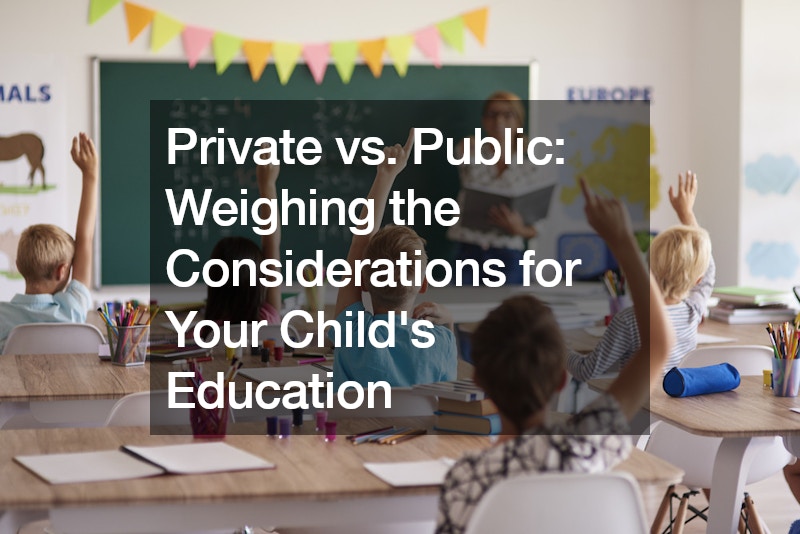When it comes to choosing the right educational path for your child, one of the key decisions parents face is whether to opt for a private or public school. Each option comes with its own set of advantages and disadvantages, and weighing these considerations is crucial for making an informed decision that aligns with your child’s needs and your family’s priorities.
Understanding the Differences
Public schools are funded by local, state, and federal governments and are open to all students, typically based on geographical location. On the other hand, private schools operate independently and are funded through tuition fees, donations, and endowments. This fundamental difference in funding often translates into variations in class sizes, resources, and educational approaches.
Class Size and Personalized Attention
One of the notable advantages of private schools is their smaller class sizes. With fewer students per classroom, teachers can provide more individualized attention, catering to the specific needs and learning styles of each student. This personalized approach allows for greater student engagement and academic support, fostering a conducive learning environment.
Smaller class sizes enable teachers to tailor their instruction to meet the needs of each student, whether they require extra help or seek additional challenges. This level of individual attention can lead to better academic performance and a deeper understanding of the material.
Academic Excellence and Resources
Private schools often boast higher academic standards and rigorous curricula compared to their public counterparts. They may offer specialized programs, advanced placement courses, and extracurricular activities that cater to a diverse range of interests and talents. Additionally, private schools tend to have access to state-of-the-art facilities, technology, and resources that enhance the learning experience.
These resources can provide students with opportunities for hands-on learning, research projects, and creative exploration. Private schools may also offer specialized support services, such as tutoring and counseling, to help students succeed academically and personally.
Financial Considerations
One of the primary concerns for many families considering private education is the cost. Tuition fees for private schools can be substantial and may pose a significant financial burden, especially for families with limited financial resources. However, it’s essential to consider the long-term benefits and opportunities that private education can offer, such as smaller class sizes and specialized programs.
While the cost of private education may be higher upfront, many families view it as an investment in their child’s future. Private schools may offer scholarships, financial aid, or payment plans to make education more accessible to a wider range of students.
Community and Diversity
Public schools often reflect the diversity of their surrounding communities, exposing students to a wide range of backgrounds, cultures, and perspectives. This diversity can enrich the educational experience and promote tolerance, empathy, and social awareness. In contrast, some private schools may have a more homogeneous student population, limiting exposure to diversity.
However, private schools often foster a strong sense of community and belonging among students, parents, and faculty. This close-knit environment can provide students with a supportive network of peers and mentors, enhancing their social and emotional development.
Local Private Schools: A Middle Ground
For families seeking the advantages of private education without the steep costs associated with elite institutions, local private schools may offer a viable middle ground. These schools often provide smaller class sizes, personalized attention, and specialized programs while remaining more affordable than prestigious private academies. Additionally, local private schools may have a stronger sense of community and familiarity, fostering close relationships between students, teachers, and families.
Conclusion
Ultimately, the decision between private and public schooling depends on your child’s individual needs, your family’s values, and your financial situation. While private schools offer advantages such as smaller class sizes and academic excellence, public schools provide diversity and inclusivity. By carefully weighing these considerations and exploring local private school options, you can make an informed choice that sets your child on the path to success in education and beyond.
.




